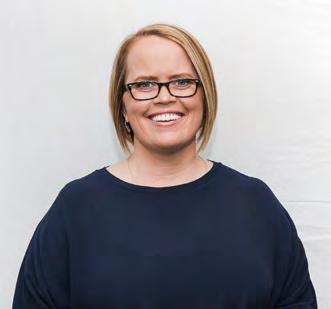
3 minute read
A surgeon’s experience of natural disaster
Dr Sally Butchers is a general surgeon based in the flood ravaged town of Lismore in New South Wales. “It’s been particularly tough for the whole community including the medical services,” she said. “We lost five weeks of elective surgery due to increased emergency surgery related to the floods, and on top of that we are now dealing with staff shortages due to COVID-19.” Dr Butchers described the causes of the cumulative strain on health services as hospitals and staff have had to adapt in emergency situations. Both private and public hospitals in Lismore lost power and had to fall back on generators. Patients in Ballina Hospital were evacuated to makeshift evacuation centres. Patients from towns that were cut off by water were transported by helicopter. Casino Hospital became the designated COVID-19 response hospital for evacuees.
“Everyone in the community was doing all they could,” Dr Butchers said. “Our head of department was ferrying drugs and equipment to various evacuation centres. Some of us were doing triage with GPs. Our Trainees helped at the evacuation centres as well.” Hospitals were faced with the dilemma of releasing people who have nowhere to go because their homes had been destroyed. Dr Butchers had two weeks’ break when she extended her leave to attend the Provincial Surgeons Annual Scientific Conference held in Mackay. “It was amazing to be able to get away— even though you have to work so hard to get away—and then you work equally hard to catch up when you return. But it enabled me to come back with a different perspective, which helped to handle the frustrations around what we’re experiencing. “It would have been interesting to see what services like Australian Medical Assistance Teams (AUSMAT) could have achieved if they had been deployed,” she said. “Our capacity to treat people was limited because we didn’t have spaces and equipment to care for people nor did we have accommodation for emergency staff. I would like to see the emergency infrastructure requirements addressed better in disaster zones.”
Advertisement
Dr Butchers said there is good recognition by many heads of department around the dangers of burnout and the need for staff to be able to take time off to prevent or alleviate exhaustion. Like many colleagues across the country working in hospitals that continue to be impacted by COVID-19, Dr Butchers has not had a proper break for a long time.
The emotional toll has been high. It’s difficult for Dr Butchers to see her community suffering such devastation, particularly when it was that sense of community that attracted her to Lismore to live and work as a surgeon, and where she is feels so much connection.
In 2019 Dr Butchers coordinated the Lismore Dance for Cancer fundraiser. It included a wide range of activities benefiting local businesses and creating opportunities for people to come together for fun. More recently the junior doctors and medical staff raised and donated money to flood victims. “Surgeons are people who like to fix things.” Dr Butchers said, “So it’s really hard when we want to fix the problem, but we can’t, because there are issues outside our control.” Dr Butchers’ sense of community extends to other professional participation. She has been the chair of the Rural Section of RACS and a member of the New South Wales State Committee. She is currently the president of General Surgeons Australia and a member of the Rural Health Equity Steering Committee. “I don’t feel any impediments to me being part of the medical community even though I am separated by distance,” Dr Butchers said. “Since COVID-19 it’s been even easier meeting online with colleagues.” Teaching as a RACS instructor on Early Management of Severe Trauma and Management of Surgical Emergencies (MOSES) courses gives Dr Butchers great satisfaction passing on the skills and structured approach she learned as a junior doctor. She feels privileged being able to meet, teach and also learn from her students who attend from other faculties and says it helps her refresh her skills.
She hopes that over time more surgeons and medical staff will be persuaded to move into regional Australia. “Everyone deserves to have access to surgical services as close to home as possible and—natural disasters aside—the community and the lifestyle I have here is incredible. I couldn’t recommend it highly enough.”
Dr Sally Butchers










